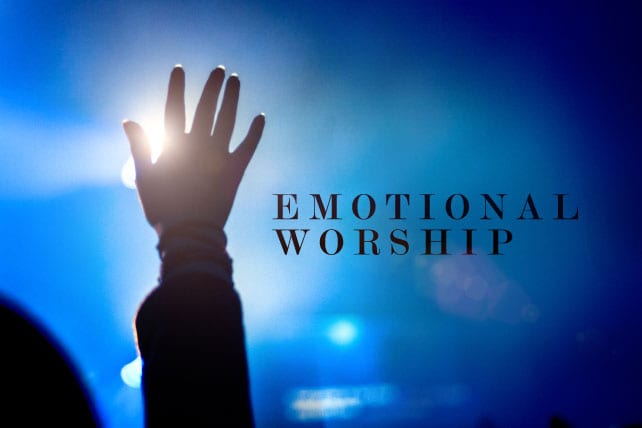When you worship Jesus, how emotional do you get?
Do you cry? Do you raise your hands? Do you dance? Do you kneel? Do you sing?
This is an important conversation to be having because let’s face it—some of us are more naturally emotional than others. For some of you, it doesn’t take much for you to cry. But some of you struggle—big time—in corporate worship because you’ve hardly ever cried in your life. You’re more dignified, reserved. It’s not that you don’t love Jesus. You’re just not expressive.
But is this an issue where we say, “To each his own?” Or is there a biblical, God-directed way for all the people of God to worship?
Is our worship too emotional?
I believe there are problems on both sides. It’s possible to be overly emotional, even strange in your worship. It’s where you draw more attention to your worship than you do the God you’re worshiping. Oftentimes the overly emotional worshiper can chase one experience after another but not have much Bible in their life. Worship becomes the chasing of a feeling more than a surrendering to the Savior in daily life.
For the more stoic among us, worship can be more of a mental agreement with truth than a heart response. You might agree with the theology but not be overwhelmed with love for Jesus.
In all of this, there needs to be a balance. We need to make sure we’re not erring on either side. Because worship is about truth—we dishonor God if we don’t know Him. But worship is also emotional—if we don’t feel strong emotions in response to God’s revealed truth, it isn’t truly worship.
Bob Kauflin speaks some wise words in his book True Worshipers:
“Some Christians have been taught to repress their emotions as they sing. They’ve been told to fear feeling anything too strongly, and that maturity means holding back. But what we want to avoid is emotionalism, not emotions. Emotionalism pursues feelings as an end in themselves. It’s wanting to feel something with no regard for how that feeling is produced or its ultimate purpose. In contrast, the emotions that singing is meant to express are a response to who God is and what he’s done. Vibrant singing enables us to combine truth about God seamlessly with passion for God. Doctrine and devotion. Mind and heart. Suppressing or ignoring your feelings when you sing contradicts what singing is designed to do. Passionless singing is an oxymoron.”












